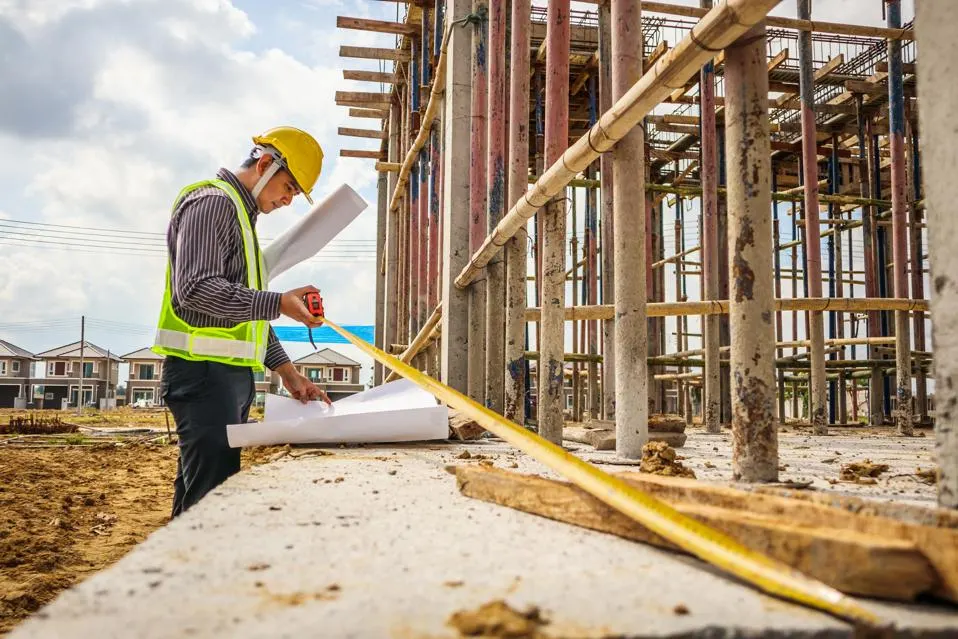Table of Contents
ToggleDo you need a permit for your house in Egypt?
Navigating Egypt’s building permit process can be a complex task for property owners, developers, and contractors. Whether you’re planning a residential home, a commercial development, or renovations, securing the right permits is not only a legal necessity but also essential to ensuring structural safety and regulatory compliance.
This comprehensive guide breaks down the key aspects of building permits in Egypt, including their purpose, the application process, relevant authorities, required documents, associated costs, and recent reforms aimed at streamlining the process.
What is a Building Permit?
A building permit is an official approval issued by a local governmental authority that allows for the construction, renovation, demolition, or change of use of a structure. In Egypt, the permit confirms that the building plans comply with zoning laws, safety codes, architectural regulations, and other national and local building standards.
Building without a permit is illegal and may lead to heavy fines, forced demolition, or loss of ownership rights.
Why Do You Need a Building Permit in Egypt?
Building permits serve several essential functions:
-
Ensuring Safety: Compliance with engineering and safety codes prevents structural failures and ensures public safety.
-
Urban Planning: Permits help control population density, traffic flow, and utility demand through zoning laws.
-
Protecting Property Rights: Permits legitimize the construction and help avoid future legal disputes over land use.
-
Access to Utilities: Utility companies often require proof of a building permit to connect water, electricity, and gas.
Legal Framework Governing Building Permits
Egypt’s building regulations are governed primarily by the Unified Building Law No. 119 of 2008. This law introduced comprehensive reforms to regulate urban planning, construction licensing, and engineering code compliance.
Several bylaws and ministerial decrees supplement the main law, particularly Ministerial Decree No. 144 of 2009, which lays out the procedures for issuing building permits and the formation of technical committees for inspections.
The authority to issue permits rests mainly with local administrative units (city councils or municipalities), under the supervision of the Ministry of Local Development and the Ministry of Housing, Utilities, and Urban Communities.
Types of Permits
There are several types of building-related permits in Egypt:
-
New Construction Permit: For any new building on undeveloped or cleared land.
-
Renovation/Alteration Permit: Required for structural changes to existing buildings.
-
Demolition Permit: Required to legally tear down a structure.
-
Change of Use Permit: Needed when converting a property (e.g., from residential to commercial use).
Step-by-Step Process for Obtaining a Building Permit
1. Prepare Required Documents
Applicants typically need to submit the following:
-
Proof of land ownership or lease
-
A site plan and architectural blueprints, stamped by a licensed engineer
-
Soil test report (for larger buildings)
-
Zoning certificate
-
ID and tax registration documents
-
Utility clearance certificates (if applicable)
-
Engineering syndicate membership (for the engineer supervising the project)
2. Submit the Application to Local Municipality
Applications are submitted to the relevant local authority (usually the district or municipal office where the property is located). Some cities, such as Cairo and Alexandria, have centralized one-stop shop offices for this purpose.
3. Technical Review and Inspection
The local authority’s engineering department conducts a technical review. This step includes:
-
Zoning compliance check
-
Review of architectural and structural drawings
-
Field inspection of the plot
In some cases, the application is forwarded to a committee of experts, particularly for large-scale or high-rise projects.
4. Approval and Issuance
If all documents are in order and the design complies with regulations, the permit is approved. The process usually takes 30 to 90 days, depending on the complexity of the project and the efficiency of the local authority.
Once approved, the permit typically has a validity period of one year. Construction must begin within this time or the permit may expire and need to be renewed.
Costs Involved
Permit fees vary depending on:
-
Project size
-
Location
-
Type of permit
In general, fees range between EGP 10 to EGP 100 per square meter for residential buildings. Additional costs include:
-
Engineering consultancy fees
-
Soil testing
-
Inspection and approval fees
-
Syndicate and municipality service fees
Keep in mind that fees are subject to change based on local ordinances and inflation.
Common Challenges and How to Overcome Them
1. Bureaucratic Delays
Delays often stem from missing documents or inconsistencies in architectural plans. To minimize this, work with a licensed consultant familiar with local requirements.
2. Unclear Zoning Regulations
In some rural or newly developed areas, zoning boundaries may not be well defined. Request official zoning maps and obtain clarification from the local office before planning.
3. Unauthorized Construction
Unauthorized or informal construction is common in Egypt. These buildings may not receive retroactive permits and can face demolition. Always verify land status before purchasing or developing.
Recent Reforms and Digitalization
In recent years, the Egyptian government has made efforts to modernize the building permit process. Key reforms include:
-
Digital Building Permits System: Piloted in several cities, this platform allows applicants to submit documents and track progress online.
-
Unified Urban Code Updates: The government is working on updating building codes to align with global sustainability standards.
-
One-Stop Shops: Several governorates now offer centralized service centers to reduce bureaucracy and improve efficiency.
These changes aim to improve Egypt’s global ranking in the World Bank’s “Ease of Doing Business” index, particularly in the construction permits category.
Tips for a Successful Permit Application
-
Hire a Licensed Engineer or Architect: Only professionals registered with the Engineering Syndicate can stamp building plans.
-
Check Local Building Codes: Requirements vary by region, especially for coastal or seismic zones.
-
Start Early: Permit issuance can take several months, especially in crowded districts.
-
Keep Copies of All Documents: Retain physical and digital copies for future reference or disputes.
-
Stay Informed About Reforms: Regulatory changes may impact permit fees, zoning, or documentation.
Conclusion
Obtaining a building permit in Egypt is an essential step in the construction process that ensures safety, legality, and proper urban development. While it can be bureaucratic, understanding the requirements and working with experienced professionals can make the process much smoother.
With ongoing reforms, digital tools, and increased transparency, Egypt is slowly transforming the experience of securing building permits. Whether you’re building a home, an office, or a commercial center, staying informed and compliant is the key to a successful and legal project.
Frequently Asked Questions
What is a building permit, and why is it required in Egypt?
A building permit is an official authorization issued by a local government authority that allows you to construct, modify, or demolish a structure. In Egypt, building permits are legally required to ensure that construction complies with safety regulations, zoning laws, and urban planning standards. Building without a permit can result in legal penalties, including demolition of the structure and heavy fines.
Who is responsible for issuing building permits in Egypt?
Building permits are issued by local administrative units, such as the city council or municipal authority, under the supervision of the Ministry of Local Development and the Ministry of Housing, Utilities, and Urban Communities. Larger projects may also involve review by a central authority or technical committee.
What types of construction activities require a building permit in Egypt?
The following activities typically require a permit:
-
New building construction (residential, commercial, or industrial)
-
Structural modifications or additions to existing buildings
-
Major renovations involving structural changes
-
Demolition of existing buildings
-
Change in building usage (e.g., from residential to commercial)
Minor interior modifications or cosmetic updates might not need a permit, but it’s best to confirm with the local authority.
What documents are required to apply for a building permit in Egypt?
While requirements can vary by locality, the standard documents include:
-
Proof of land ownership (title deed or contract)
-
A site plan and building design, stamped by a licensed engineer or architect
-
Soil analysis (for buildings over a certain size)
-
A zoning certificate from the local authority
-
Engineering syndicate registration for supervising engineers
-
Civil ID of the applicant
-
Tax registration documents
-
Utility clearance or approval letters (water, electricity, gas)
Some regions may request additional supporting documents depending on the nature of the project.
How long does it take to get a building permit in Egypt?
The process generally takes 30 to 90 days, depending on:
-
The complexity and size of the project
-
The completeness of submitted documents
-
The responsiveness of the local authority
In some cases, delays may occur due to field inspections or review by technical committees.
